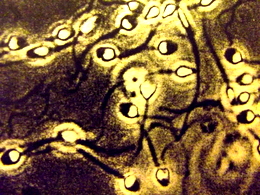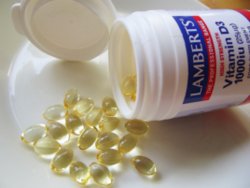Introduction
 What I have written below, is intended to help couples who are planning to embark on IVF treatment, and who are considering the use of acupuncture to improve their chances of success. You may already have read some of the positive research findings in the last few years (more articles below). You will probably know less about what would be involved in receiving acupuncture during IVF treatment, and about the full scope of what we might hope to achieve.
What I have written below, is intended to help couples who are planning to embark on IVF treatment, and who are considering the use of acupuncture to improve their chances of success. You may already have read some of the positive research findings in the last few years (more articles below). You will probably know less about what would be involved in receiving acupuncture during IVF treatment, and about the full scope of what we might hope to achieve.
At the end of 2015, some significant research was published, indicating that in the UK, two-thirds of patients will finally have a baby after six or more cycles. The researchers, lead by the Universities of Bristol and Glasgow, emphasised that patients should therefore try to prepare themselves for multiple cycles of treatment. In the light of this, anything such as acupuncture, which has been shown to be capable of improving success rates, should be probably be considered.
On the topic of research, do while you are waiting to embark on the IVF path, have a look at my Fertility article. There may be some lifestyle measures which you can adopt. I really believe in looking for marginal gains anywhere we can find them; when put together, they can add up to something significant.
Acupuncture Scheduling
The causes of infertility frequently defy clear western medical explanation. However, a traditional acupuncture consultation may point towards possible factors. These can be as basic as stress or overwork, or sometimes other, more subtle disharmonies are identified. In all cases though, the cause from an acupuncture perspective, allows me to devise a treatment plan.
Ideally, I would see you weekly for at least two or three menstrual cycles before IVF treatment begins. This might not be possible if you are on the brink of beginning your drug cycle and have only just heard about the benefits of acupuncture. In this case, do not be put off and at least arrange some acupuncture to improve your chances of success, and to help with any stress and anxiety you may be feeling.
Bear in mind IVF may circumvent ovulation problems and failure of sperm to fertilise the egg, but it still relies on the embryo then successfully implanting. For this to happen, your womb lining must be receptive and sufficiently thick. My treatment approach is therefore to try to encourage a thick womb lining, whilst also trying to put you into the best possible state of overall health in the time we have. It makes sense that an embryo is more likely to implant into a receptive womb within a healthy body.
Some Specific Aims of Acupuncture Treatment
Once IVF treatment begins, your acupuncture sessions can include specifics for each stage of the IVF cycle. Our aims can include the following:
1) Help with any side-effects (eg. flushes, sweating, palpitations, headaches) of the down-regulation drugs (norethisterone, buserelin).
2) Help with any side-effects (eg. mood swings, abdominal distension) of ovarian stimulation injections (puregon).
3) Encouraging follicular growth, guided sometimes by your first scan.
4) Reducing stress levels just prior to egg collection.
5) After embryo transfer, support of a possible pregnancy.
In the two week period while you wait to perform a pregnancy test, I can offer acupuncture once a week if you wish. This phase can sometimes feel a bit of an anti-climax, when after all the attention of preceding weeks, you are left on your own and trying to take your mind off the outcome of it all.
There is no denying that IVF treatment can be a stressful experience for couples, and I feel this can be an in-built counterproductive feature. It is here though that acupuncture can really score, by keeping stress levels lower and by providing a regular opportunity to offload concerns. I am hopeful that the trend towards “gentle IVF” might offset some of this stress. Coupled with this, a smaller quantity of higher quality eggs might improve outcomes.
Treatment for Men
Although the emphasis in this article has been on women, male partners too can benefit from acupuncture in several ways. About 50% of IVF procedures are now performed due to some problem with the sperm. Poor sperm characteristics and unsuccessful vasectomy reversals have been common reasons in my practice. Men with a low sperm count, motility or morphology, may benefit from a course of acupuncture, ideally commencing at least three months prior to egg retrieval for IVF. For more on male fertility, please see my Fertility article mentioned above.
Recurrent Implantation Failure
There is just one other aspect of IVF and assisted reproduction techniques which is worth mentioning here, and that is recurrent implantation failure. This is where the embryo repeatedly fails to implant in the uterus of an otherwise healthy woman. Such women might undergo three IVF cycles, each of which produces promising embryos, but none of which results in pregnancy. From a fertility clinic’s perspective, this is thought to be due to egg quality (and therefore a woman’s age), a thin endometrium (11 to 12mm at ovulation is optimal), uterine scarring (from a previous caesarean section or a D&C), and/or sperm quality.
 Some research suggests endometrial receptivity may be lower in women who are deficient in vitamin D. This vitamin may also be important for several other aspects of the assisted reproduction process. We make it when exposed to sunlight, and we can obtain it from foods such as oily fish and egg yolk.
Some research suggests endometrial receptivity may be lower in women who are deficient in vitamin D. This vitamin may also be important for several other aspects of the assisted reproduction process. We make it when exposed to sunlight, and we can obtain it from foods such as oily fish and egg yolk.
Although at the experimental stage, attention is now also turning to the endometrial microbiome and the healthy bacteria levels that may play a role in embryo implantation. Probiotic treatment may be a way forward to balance the endometrial flora and so improve the chance of pregnancy. A test has been developed to look for eight bacteria which are potentially harmful to an implanting embryo, suggesting antibiotic treatment may be a solution. Liverpool Women’s NHS Foundation Trust is trying to assess these considerations. Research shows the vaginal microbiome plays a role too: more successful IVF outcomes result when the microbiome is dominated by lactobacillus species, compared to when it hosts a more diverse species profile.
From the acupuncture perspective, there are also explanations for recurrent implantation failure. If you have already experienced it, then we can consider whether these factors might be at work. A course of acupuncture combined with changes of approach which your fertility clinic will discuss with you (eg moving embryo transfer backwards or forwards a day, assisted hatching, blastocyst culture), might improve your chances of success. This is an area where we should again consider treatment for a male partner.
Summary
Overall, I hope this has provided a helpful introduction to how I work, but as always, you are welcome to telephone and discuss things further. Below you can read the results of some of the research which has been undertaken into acupuncture in support of IVF. The trials vary in quality, but systematic reviews and randomised controlled trials are generally considered to provide the highest quality evidence. If you would like to read more about evidence quality, I would refer you to the British Acupuncture Council’s description of the evidence pyramid.
“Robin has treated me throughout 18 months’ fertility treatment. This has been supportive both physically and emotionally. I attribute the success of my progress to Robin’s holistic approach and the caring ethos and values he promotes in his practice. I will continue to see Robin during my pregnancy to support my emotional health and wellbeing.” – Sam, Exeter
